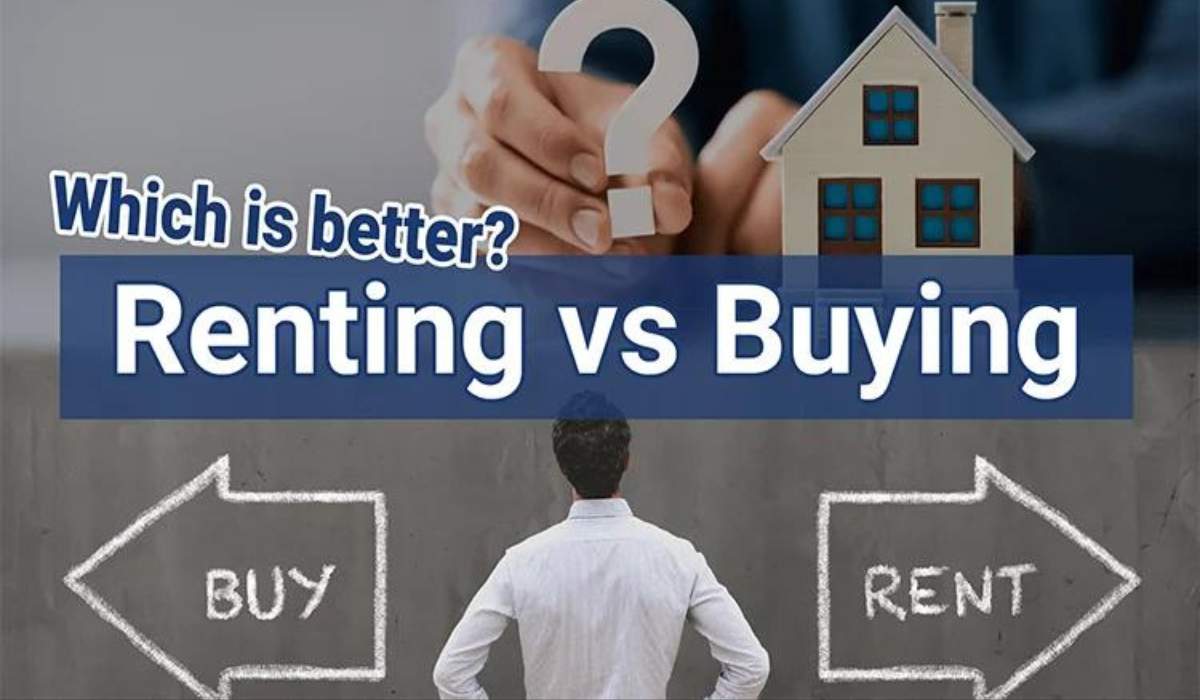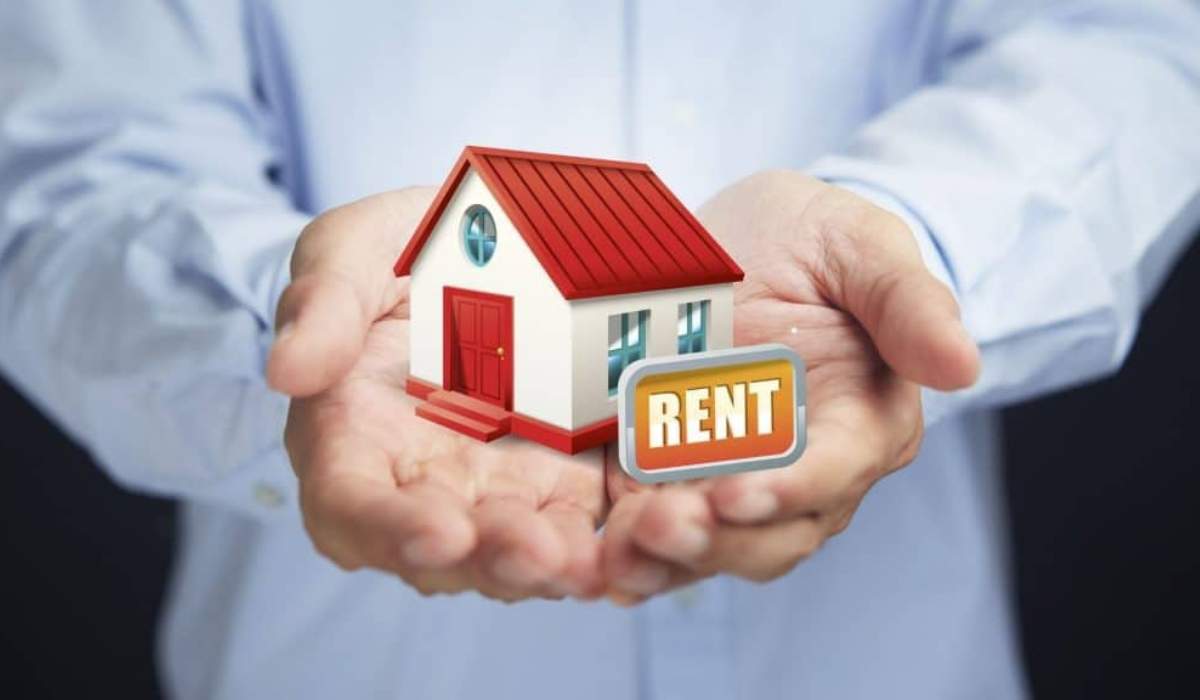Renting vs. Buying: Exploring the Pros & Cons of The Current Real Estate Landscape
In the changing real estate market of today, it’s getting harder to decide whether to rent or buy a house. With housing prices at all-time highs and rents going up, people who want to buy a home are in a tough situation that needs careful thought. In this detailed piece, we’ll look at the pros and cons of renting vs. buying, taking into account how the real estate market is right now. By knowing the pros and cons of each choice, people can make choices that are in line with their financial goals and the way they want to live.
Compare the pros and cons of renting vs. buying:

Advantages of buying a house: Possible Increase in Equity: When you own a home, you can build equity over time as the value of the land goes up. Homeowners can use home equity products to get at this equity, which is a useful asset. Also, in a market with few homes for sale, getting a home can be a smart way to get a valuable asset that may grow in worth over time.
Freedom and security: Owning a home gives you a sense of security, especially when it comes to things like school districts and long-term living arrangements. Homeowners are free to make changes and improvements to their property based on their own tastes. This lets them make their home a more personalized place to live.
Tax Benefits: Owning a home may have tax benefits, like being able to deduct your mortgage payments. If a buyer claims benefits, their federal tax bill can go down, which can be a big benefit. It’s important to talk to a tax expert to fully understand how property affects your taxes and how it fits with your personal finances.
Long-Term Investment: Buying a home is often seen as a long-term investment that can give financial protection and stability. As the property’s value goes up, the owner may be able to make money when they sell it in the future.
Downsides to buying a house:
Costs up front: When you buy a house, you have to pay a lot of money upfront. This includes the down payment, closing costs, and other fees. Buyers need to think carefully about these costs and make sure they have enough money to pay for them. But in a market with few homes for sale, working with a trusted real estate agent can help buyers get through the process and find deals that aren’t on the market.
Conditions on the market: High housing prices and low inventory can make it hard to find affordable homes in many areas. Buyers may have to deal with tough competition and high prices. However, working with a good real estate agent who has access to AI software can help buyers find deals that aren’t on the market and give them an edge in a market with few homes for sale.
Financial Responsibility: Homeowners are responsible for ongoing costs like property taxes, insurance, upkeep, and repairs, which are not covered by their mortgage payments. These costs can add up and need to be planned for carefully. Working with a real estate agent who knows a lot about the local market, on the other hand, can help buyers make smart decisions about the financial side of being a landlord.
Why renting is good:

Flexibility and mobility: When you rent, you have more freedom to move, which can be helpful for people who know their personal or work lives will change. In a market with few homes for sale, renting can give people the freedom to try out different areas and figure out what their long-term housing needs are.
Less Money Up Front: Buying is usually more expensive up front than renting. Renters normally pay a security deposit, the first month’s rent, and the last month’s rent. This makes it easier for people with little money to rent.
upkeep and Repairs: It’s not the renter’s job to take care of property upkeep and repairs. Most of the time, landlords take care of problems that come up, saving renters from having to pay for them.
Against renting:
Limited Control and Design Choices: Renters don’t have much say over the property, and they can’t change things like the paint color or the appliances. This lack of control may make it harder to make a living place that feels like home. However, renting can still give people the chance to try out different areas and types of homes.
Rent Increases and Limited Stability: Renters may have to pay more in the future, which can affect how much money they have each month. Also, owners may decide to sell the property, which would force renters to move quickly. However, renters can reduce these risks by signing longer leases or looking for places to live that have rent control laws.
Consider the financial side: When comparing the prices of renting vs. buying, it’s important to look at the location and housing market in the area. Things to think about are things like security deposits, monthly mortgage payments, property taxes, homeowners association dues, and ongoing repair costs. Buyers can use online tools and talk to real estate agents to estimate and compare the costs of renting versus buying in the place they want.
Building Equity and Tax Implications: Owning a home gives you the chance to build equity over time, which can help you save money when you sell the home. Also, mortgage interest deductions can lower a homeowner’s federal tax bill if they itemize exemptions. It’s important to know about the latest tax rules and to get personalized help from tax professionals.
Upkeep Costs and Responsibilities: One of the best things about renting is that you don’t have to worry about upkeep and repair costs. This is usually the landlord’s job. But property owners need to be ready for the costs that come with taking care of their land. Planning for unexpected repairs and setting aside money for regular upkeep are important parts of being a homeowner. Homeowners should also think about starting an emergency fund to pay for any costs that come out of the blue.
Things to think about:
People should ask themselves a few questions before choosing whether to rent or buy:
How much it costs: Think about how much your rent or mortgage is each month and if you can afford it. Look at your current financial position and your plans for the future to see if buying a home fits into your budget.
Long-term Investment: Figure out if you’re ready for a long-term commitment and look at your financial, job, and family goals. Think about how long you plan to stay in the area and if you expect any big changes in your life that might change your living needs.
Stability vs. Flexibility: Think about your lifestyle and future goals and decide whether stability or flexibility is more important to you. Think about your personal and business goals and how they fit with the pros and cons of buying or renting.
Design Choices and Control: Think about how much you want to make your living area your own and how much control you want over it. If design choice is important, becoming a homeowner may give you more options for making changes.
Location and affordability: Figure out if you can afford to be a homeowner in the neighborhood you want or if you need to move. Think about things like the number of homes on the market and how prices are moving to make a good choice.
Getting the help of a real estate agent:

<p id=viewer-bhodi class=xVISr Y9Dpf bCMSCT OZy-3 lnyWN yMZv8w bCMSCT public-DraftStyleDefault-block-depth0